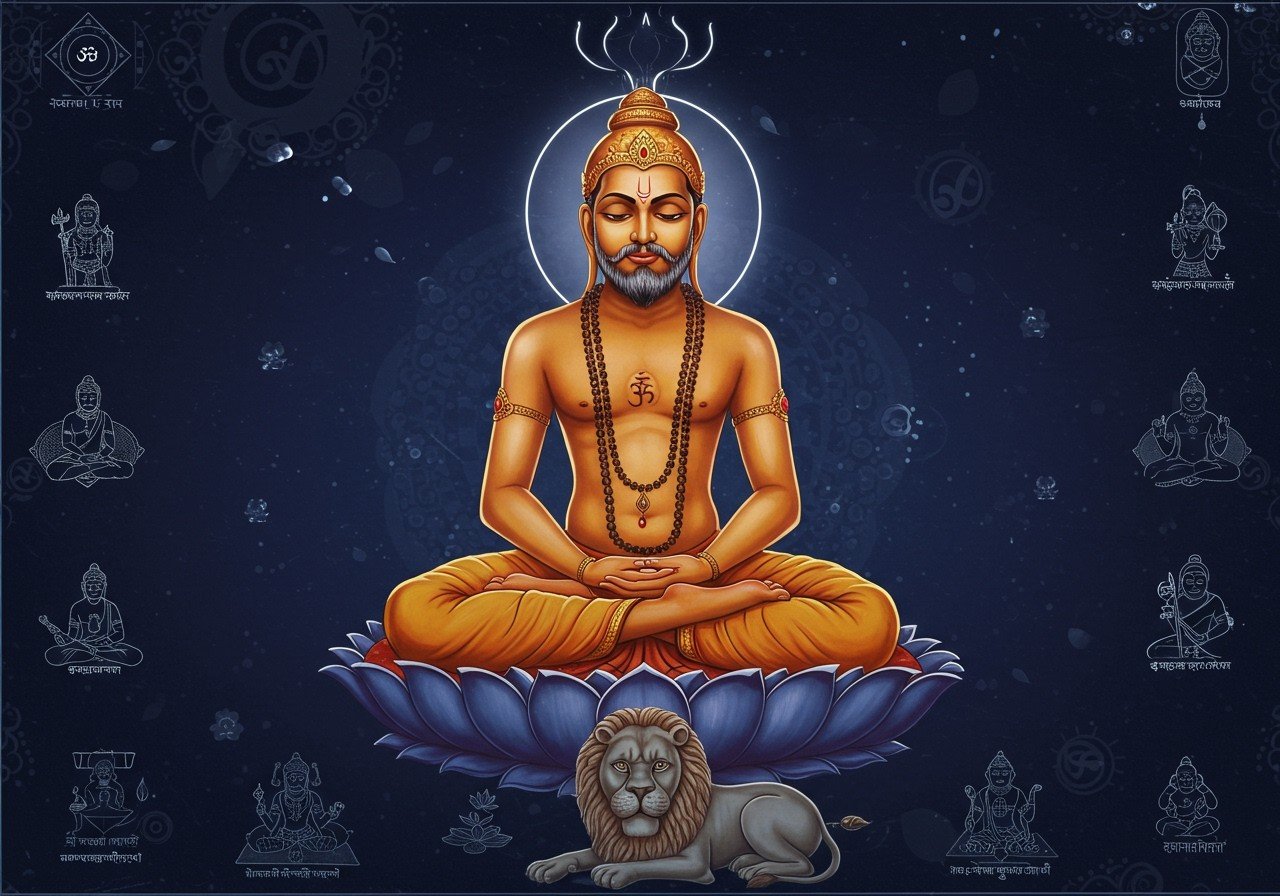
Mahavira, also known as Vardhamana, holds immense significance in India’s spiritual landscape as the 24th Tirthankara of Jainism. This article delves into his life, teachings, and the profound impact of Jainism on Indian culture. By exploring Mahavira’s journey and philosophy, we gain a deeper appreciation for Jain traditions and rituals.
Early Life of Mahavira
The Beginnings of a Spiritual Journey
Born into royalty in Kundagrama (present-day Bihar) around the 6th century BCE, Vardhamana, later known as Mahavira, experienced a privileged upbringing as the son of King Siddhartha and Queen Trishala. This early exposure to luxury and comfort played a pivotal role in shaping his spiritual quest. His family belonged to the Kshatriya caste and followed the teachings of Parshvanatha, the 23rd Tirthankara.
- Family Influence: His family’s status and societal expectations significantly shaped his early life, exposing him to the realities of both privilege and suffering. This contrast contributed to his later renunciation of worldly possessions.
- Renunciation: At the age of 30, Mahavira chose to renounce his worldly life, including his family, kingdom, and material possessions. This act of renunciation marked the beginning of his dedicated pursuit of spiritual enlightenment.
- Ascetic Practices: Mahavira embarked on a path of rigorous ascetic practices, involving intense meditation, fasting, and self-discipline. These practices were instrumental in his spiritual development and eventual attainment of enlightenment.
Mahavira’s Spiritual Journey
Path to Enlightenment
Mahavira’s relentless pursuit of self-realization involved twelve years of intense meditation and severe austerities. He practiced deep meditation and rigorous self-discipline, often enduring extreme physical hardships. He finally achieved ‘Kevala Jnana’ (omniscience) under a Sal tree in the fields of Jambu, marking the culmination of his spiritual quest.
- Penance: For twelve years, Mahavira underwent rigorous penance, pushing his physical and mental limits to attain spiritual liberation. This period of intense self-discipline played a crucial role in his spiritual transformation.
- Kevala Jnana: The culmination of his arduous journey was the attainment of Kevala Jnana, a state of omniscience and complete understanding of the universe. This profound realization marked him as a Tirthankara, a spiritual teacher who has conquered the cycle of birth and death.
- Transformation: His spiritual journey transformed him from Vardhamana, the prince, to Mahavira, meaning ‘Great Hero’. This name reflects his triumph over inner struggles and his attainment of supreme spiritual strength and wisdom.
- Teachings Impact: Mahavira’s teachings profoundly influenced contemporary society, attracting a large following of disciples who were drawn to his message of non-violence, self-discipline, and spiritual liberation.
Teachings of Mahavira
Core Principles of Jain Philosophy
Mahavira’s teachings emphasize three core principles: non-violence (Ahimsa), truthfulness (Satya), and asceticism. These principles form the foundation of Jain philosophy and guide practitioners toward spiritual growth and liberation. His teachings are deeply rooted in the ancient principles of Jainism, emphasizing the interconnectedness of all living beings and the importance of ethical conduct.
- Ahimsa (Non-violence): Ahimsa is the cornerstone of Jainism, promoting compassion and respect for all living creatures. It encourages mindful actions and a commitment to minimizing harm in all aspects of life. Explore related concepts in our blog post on ancient wisdom.
- Satya (Truthfulness): Truthfulness is paramount in Jainism, advocating for honesty and integrity in thought, word, and deed. It emphasizes the importance of living authentically and upholding moral principles.
- Aparigraha (Non-possessiveness): Non-possessiveness encourages detachment from material possessions and a simple lifestyle. It promotes contentment and freedom from the burdens of worldly attachments.
- Brahmacharya (Celibacy): Celibacy is seen as a vital practice for spiritual discipline and control over desires. It allows practitioners to focus their energy on spiritual development and self-realization.
- Asteya (Non-stealing): Non-stealing emphasizes ethical behavior and respect for the property of others. It promotes honesty and integrity in all interactions.
- Five Great Vows (Mahavratas): The Five Great Vows are fundamental ethical principles for Jains, encompassing non-violence, truthfulness, non-stealing, chastity, and non-possession. These vows guide practitioners toward a life of spiritual purity and liberation.
Mahavira as the 24th Tirthankara
Final Savior and Spiritual Teacher
Revered as the 24th and final Tirthankara in Jainism, Mahavira holds a unique position as a savior and spiritual teacher. Each of the 24 Tirthankaras contributed to the development of Jain philosophy, with Mahavira’s teachings representing the culmination of this spiritual lineage. His teachings are considered the final and complete expression of Jain doctrine, providing a comprehensive path to liberation.
Mahavira’s reforms within the Jain monastic community played a crucial role in shaping contemporary Jainism. Similar to other traditions, Jain rituals and practices evolved over time, reflecting the historical and cultural context of his era. His emphasis on non-violence, truth, and asceticism continues to inspire millions worldwide. Understanding his journey provides a deeper appreciation for Jain traditions and rituals, enriching spiritual and cultural lives.
Poojn.in: Supporting Your Jain Spiritual Journey
Poojn.in, India’s leading online store for cultural and religious goods, offers a wide range of products to support your Jain spiritual practices. Explore our collection of:
- Jain Mala Beads: Enhance your meditation practice with authentic mala beads crafted from natural materials.
- Statues and Idols: Find beautifully crafted statues of Mahavira and other Tirthankaras for your home altar.
- Incense and Dhoop: Create a sacred atmosphere with natural incense and dhoop, free from animal products.
Visit poojn.in today to discover a wide selection of products that honor Mahavira’s teachings and support your spiritual journey.
Conclusion
Mahavira’s life and teachings offer profound wisdom for contemporary times. His unwavering commitment to non-violence, truth, and asceticism remains the foundation of Jain philosophy. As the last Tirthankara, Mahavira’s spiritual path and principles guide millions toward peace and enlightenment. Embracing his teachings deepens our understanding of Jain traditions and practices, connecting us to our rich cultural heritage. Whether through rituals or daily actions, Mahavira’s legacy inspires us to live with compassion, integrity, and simplicity.


